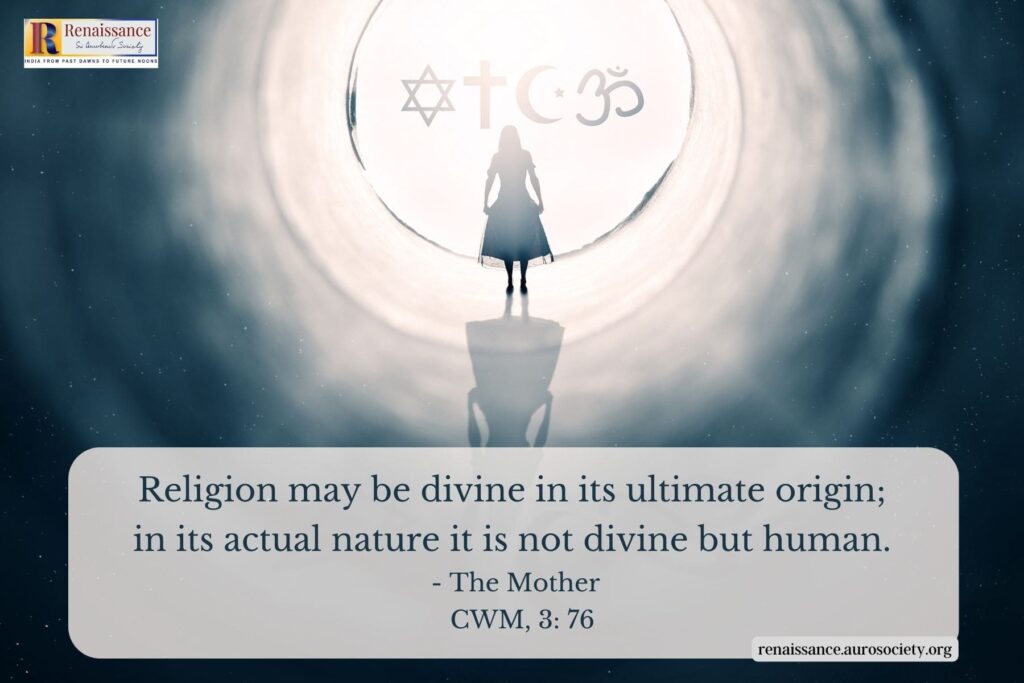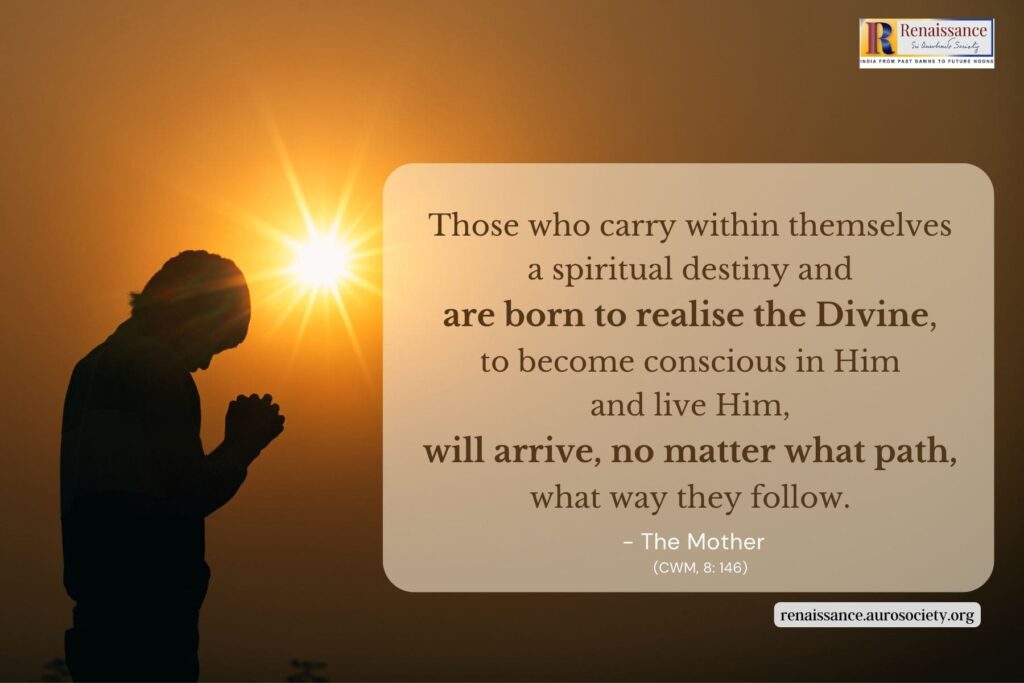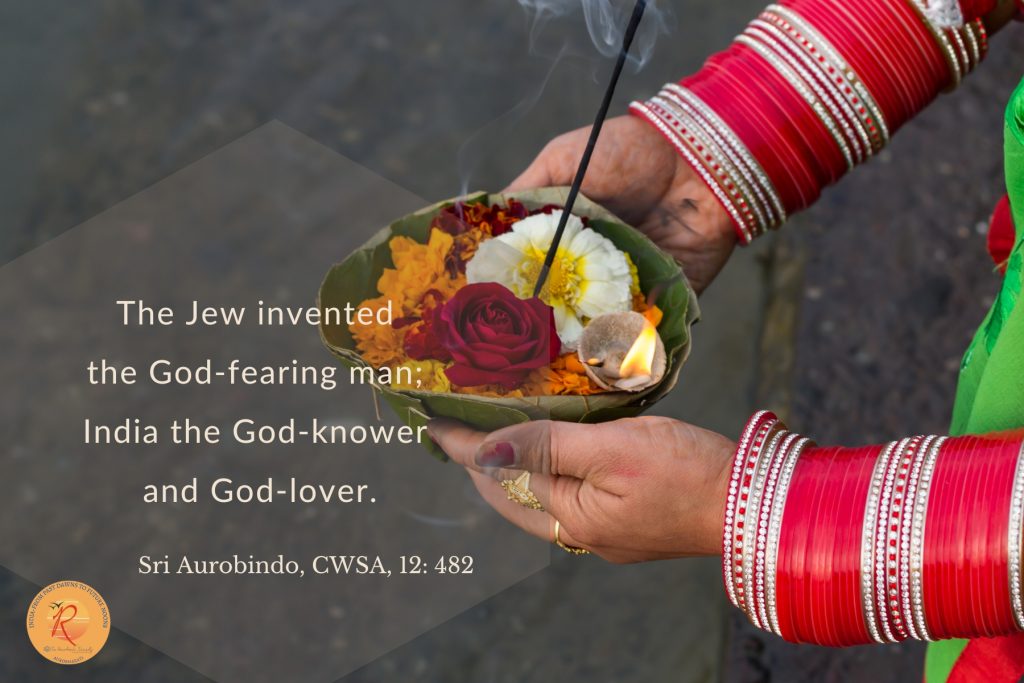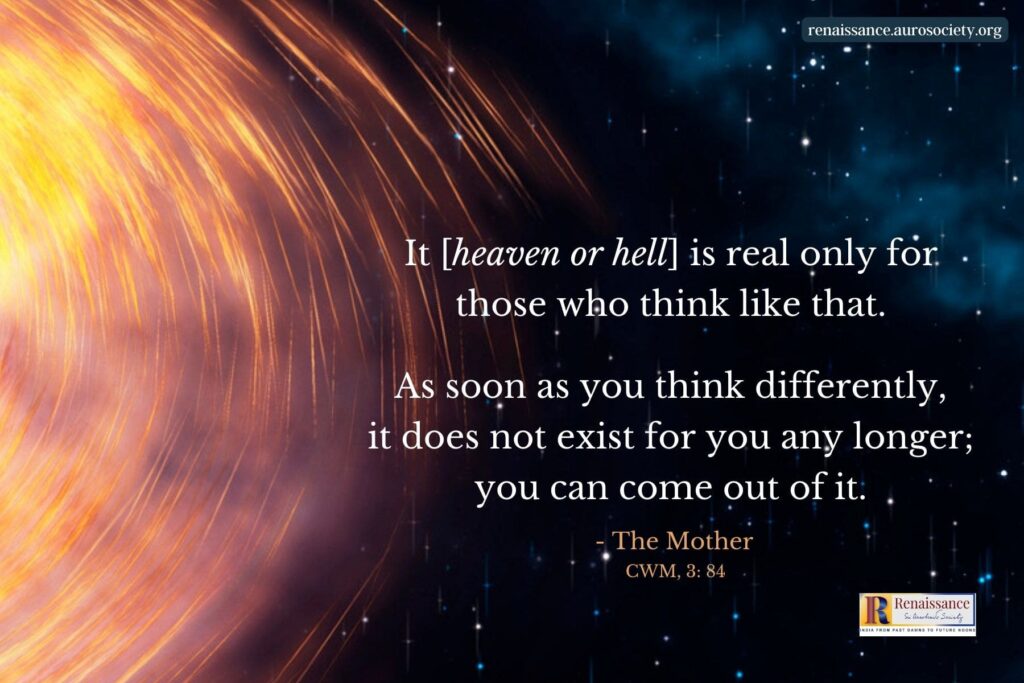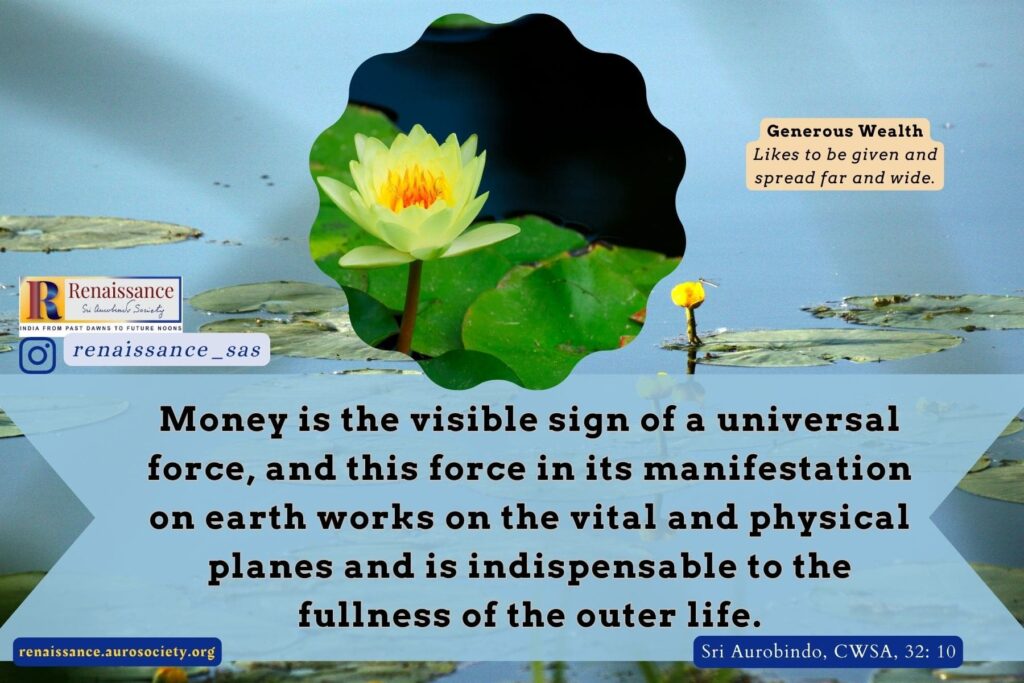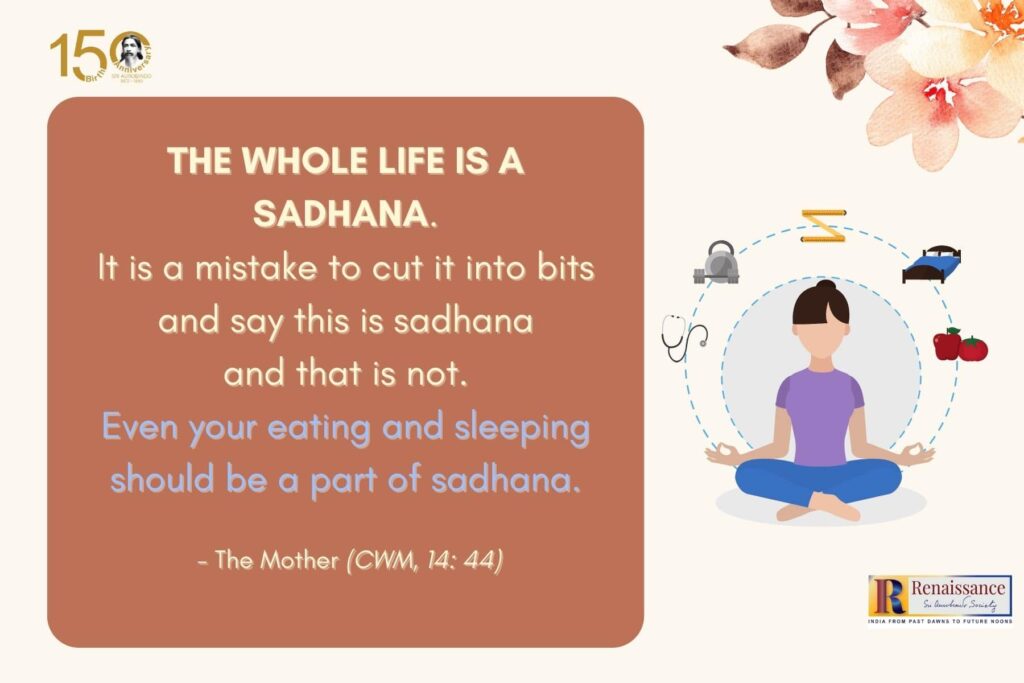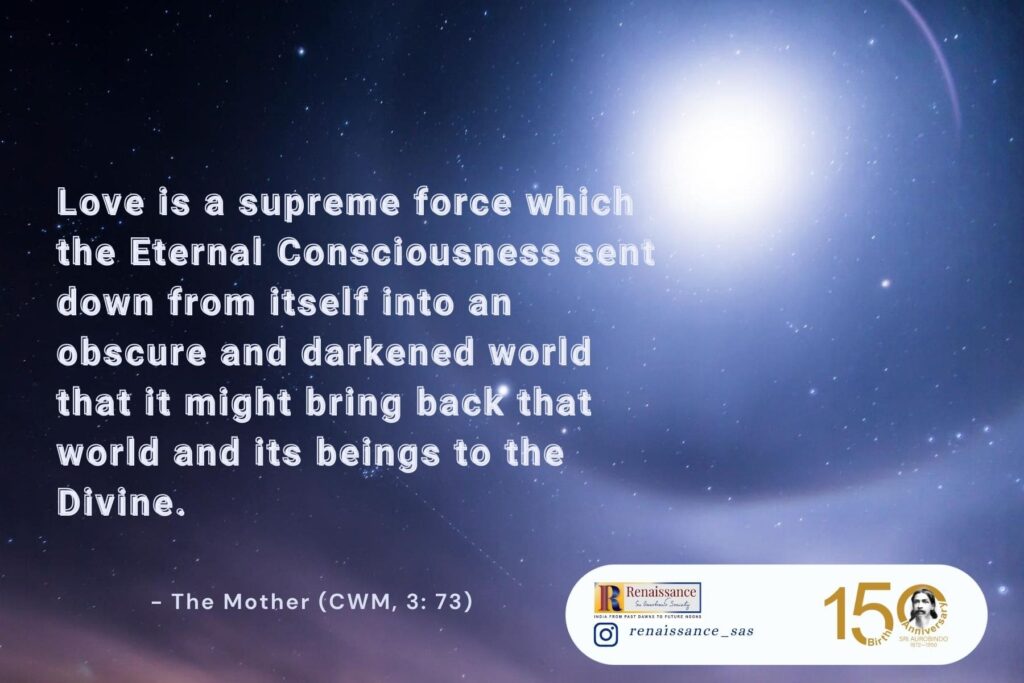The Mother on the Origin and Social Crystallization of Religion
The Mother explains that religion may be divine in its ultimate origin; in its actual nature it is not divine but human.
The Mother on the Origin and Social Crystallization of Religion Read More »

